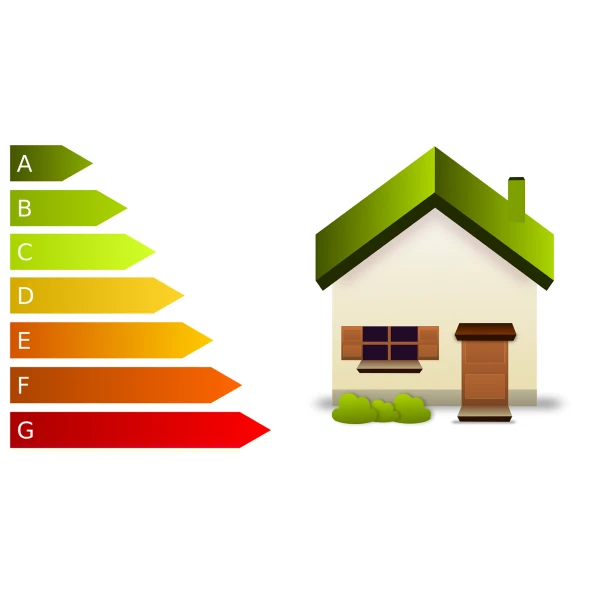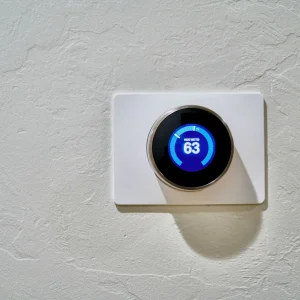Solar power is not just a trendy buzzword anymore; it’s a tangible solution to our ever-growing energy needs. With the world gradually shifting towards sustainable energy sources, understanding how to make the most of solar power through energy efficiency becomes crucial. In this article, we’ll delve into some practical tips and insights on enhancing energy efficiency specifically for solar power users.
Introduction
In today’s world, where environmental consciousness is on the rise, energy efficiency has become a key focus for individuals and businesses alike. As we strive to reduce our carbon footprint and minimize energy costs, harnessing the power of the sun through solar panels presents a promising solution. However, simply installing solar panels is not enough; optimizing energy efficiency is equally important to maximize the benefits of solar power.
Understanding Solar Power
Before we dive into energy efficiency tips, let’s first understand what solar power is and how it works. Solar power harnesses the energy emitted by the sun through photovoltaic cells, converting sunlight into electricity. This renewable energy source is clean, abundant, and sustainable, making it an attractive alternative to traditional fossil fuels.
Importance of Energy Efficiency in Solar Power
While solar power itself is environmentally friendly, the efficiency with which we utilize it can vary. Maximizing energy efficiency ensures that we extract the most energy from our solar panels, thereby optimizing their performance and reducing overall energy consumption.
Energy-Efficient Practices for Solar Power Users
To enhance energy efficiency in solar power usage, consider the following practices:
1. Investing in High-Efficiency Solar Panels
Not all solar panels are created equal. Investing in high-efficiency panels may require a larger upfront investment but can significantly increase the amount of electricity generated per square foot of panel area.
2. Proper Placement and Orientation of Solar Panels
Ensuring that your solar panels are correctly positioned and angled towards the sun maximizes their exposure to sunlight throughout the day, optimizing energy production.
3. Regular Maintenance and Cleaning of Solar Panels
Dirt, dust, and debris can accumulate on solar panels over time, reducing their efficiency. Regular cleaning and maintenance help keep them operating at peak performance.
4. Utilizing Energy-Efficient Appliances and Devices
Pairing your solar power system with energy-efficient appliances and devices further reduces energy consumption, allowing you to make the most of your solar-generated electricity.
5. Implementing Smart Home Energy Management Systems
Smart home technology allows for real-time monitoring and control of energy usage, enabling you to identify areas for improvement and adjust accordingly.
Tips for Enhancing Energy Efficiency at Home
In addition to optimizing solar power usage, there are several other energy-efficient practices you can adopt at home:
1. Insulating and Sealing Your Home
Proper insulation and sealing prevent energy loss, keeping your home comfortable and reducing the workload on your heating and cooling systems.
2. Upgrading to Energy-Efficient Lighting
Switching to LED bulbs and fixtures reduces energy consumption and lowers electricity bills.
3. Using Programmable Thermostats
Programmable thermostats allow you to set temperatures based on your schedule, optimizing energy usage when you’re away from home or asleep.
4. Adopting Energy-Saving Habits
Simple habits like turning off lights when not in use, unplugging electronics, and air-drying clothes can add up to significant energy savings over time.
Financial Incentives and Rebates
Exploring available financial incentives and rebates for energy-efficient upgrades can further offset the initial investment in solar power and energy-efficient upgrades. Many governments and utilities offer incentives such as tax credits, rebates, and net metering programs to encourage renewable energy adoption.
The Future of Energy Efficiency and Solar Power
As technology continues to advance, we can expect to see even greater improvements in energy efficiency and solar power. From breakthroughs in solar panel design to innovations in energy storage and distribution, the future holds immense potential for a more sustainable and efficient energy landscape.
Maximizing Solar Power Output
One of the primary goals of energy efficiency in solar power usage is to maximize the output of your solar panels. Here are some additional tips to help you achieve this:
1. Optimal Inverter Selection
Choosing the right inverter for your solar power system is crucial for maximizing energy production. Different inverters have varying efficiency ratings and capabilities, so consulting with a solar expert can help you select the best option for your specific needs.
2. Monitoring Energy Usage
Regularly monitoring your energy usage and solar production can provide valuable insights into how effectively your system is operating. By identifying any discrepancies or inefficiencies, you can take proactive measures to address them and optimize performance.
3. Shade Management
Even small amounts of shade can significantly impact the output of solar panels. Trimming trees or adjusting the placement of panels to minimize shading can help maximize solar exposure and energy production.
Community Solar Programs
For individuals unable to install solar panels on their own property, community solar programs offer a viable alternative. These programs allow participants to purchase or lease shares in a larger solar array located off-site. By pooling resources with others in the community, participants can still benefit from solar energy without the need for rooftop installation.
Educating Others About Energy Efficiency
In addition to implementing energy-efficient practices in your own home, spreading awareness and educating others about the importance of energy efficiency can have a ripple effect in your community. Whether through informal conversations with friends and family or participating in local sustainability initiatives, sharing knowledge and resources can inspire others to take action towards a greener future.
Government Policies and Advocacy
Advocating for supportive government policies and initiatives is another effective way to promote energy efficiency and solar power adoption on a larger scale. By engaging with policymakers, advocating for renewable energy incentives, and supporting legislation that encourages sustainable practices, individuals can drive positive change at the local, regional, and national levels.
Continuing Education and Research
The field of renewable energy is constantly evolving, with new technologies and innovations emerging regularly. Staying informed about the latest developments through continued education and research ensures that you remain at the forefront of energy efficiency practices and can make informed decisions about your solar power investment.
Community Engagement and Collaboration
Collaborating with local organizations, businesses, and community groups can amplify your impact and foster a sense of collective responsibility towards energy efficiency and sustainability. Whether through organizing community clean-up events, hosting educational workshops, or partnering with like-minded organizations, working together towards common goals strengthens the resilience and vitality of your community.
Celebrating Successes and Milestones
Finally, celebrating successes and milestones along your energy efficiency journey is essential for maintaining motivation and momentum. Whether it’s reaching a significant energy savings goal, installing a new solar panel system, or receiving recognition for your sustainability efforts, taking time to acknowledge and celebrate achievements reinforces the importance of your commitment to a greener future.
Conclusion
In conclusion, maximizing energy efficiency is key to unlocking the full potential of solar power. By implementing the tips and practices outlined in this article, you can not only reduce your carbon footprint and energy bills but also contribute to a more sustainable future for generations to come.
FAQs
Can I install solar panels on my roof even if it doesn’t receive direct sunlight all day?
Absolutely! While ideal conditions involve ample sunlight, even partial sunlight can generate significant electricity. A professional assessment can determine the feasibility and potential output of solar panels for your specific location.
How long does it take to recoup the initial investment in solar panels through energy savings?
The payback period for solar panels varies depending on factors such as location, energy usage, incentives, and system size. On average, homeowners can expect to recoup their investment within 5 to 10 years.
Are there any maintenance costs associated with solar panels?
While solar panels require minimal maintenance, occasional cleaning and inspection may be necessary to ensure optimal performance. Most reputable installers offer warranties and service plans to cover any unforeseen issues.
Will installing solar panels increase the resale value of my home?
Studies have shown that homes equipped with solar panels tend to sell faster and at a premium compared to non-solar homes. Potential buyers value the long-term energy savings and environmental benefits associated with solar power.
What happens to excess energy produced by my solar panels?
Excess energy generated by solar panels can be stored in batteries for later use or exported to the grid for credits through net metering programs. This allows homeowners to maximize their solar investment and further reduce energy costs.
How can I determine the ideal size of a solar power system for my home?
The size of a solar power system depends on factors such as your energy usage, roof size, and available sunlight. A reputable solar installer can conduct a site assessment and provide recommendations based on your specific needs and circumstances.
Are there any limitations to the lifespan of solar panels?
While solar panels are designed to last for decades, their efficiency may decline slightly over time due to factors such as weathering and degradation. However, most reputable manufacturers offer warranties guaranteeing performance for 20 to 25 years or more.
Can I use solar power to heat my home’s water supply?
Yes, solar water heating systems are an efficient and cost-effective way to utilize solar energy for domestic hot water production. These systems typically consist of solar collectors mounted on the roof and a storage tank to store heated water for use throughout the home.
Are there any environmental benefits to using solar power beyond reducing carbon emissions?
In addition to reducing greenhouse gas emissions, solar power also helps conserve water resources by eliminating the need for water-intensive cooling processes associated with conventional power generation. Furthermore, solar energy reduces reliance on finite fossil fuels, promoting greater energy independence and security.
How can I assess the financial feasibility of installing solar panels on my property?
Many factors influence the financial viability of solar panel installation, including upfront costs, available incentives, energy savings, and payback period. Conducting a thorough cost-benefit analysis with the assistance of a solar professional can help you determine whether solar power is a wise investment for your home or business.




